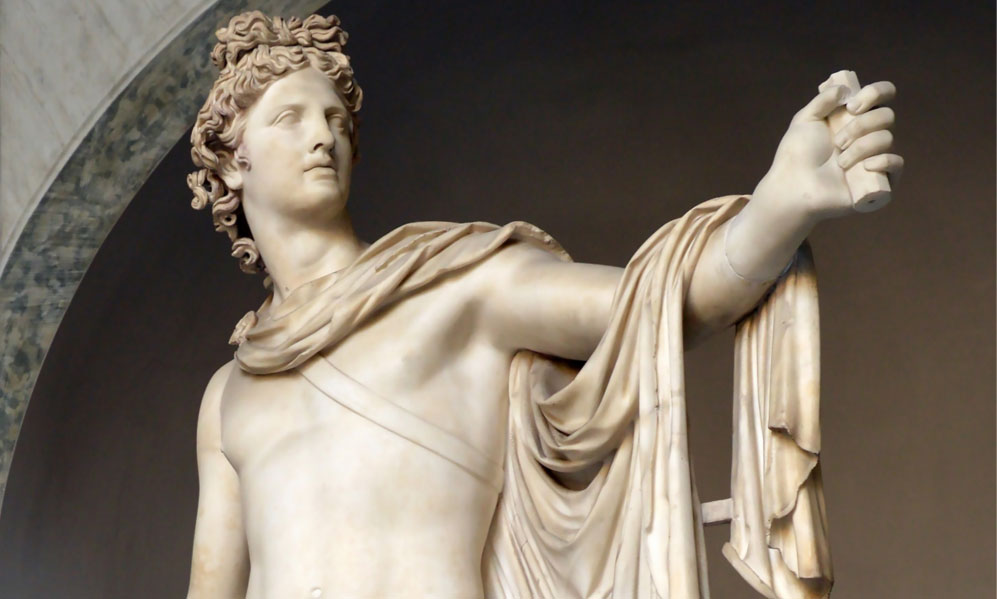Archaeologists with the Apollonia Pontica Excavation Project have been exploring the ancient city of Sozopol, Bulgaria. Their findings of temples, altars and artifacts suggest the area, potentially an island off the coast, hides a lost temple Apollon, according to Popular Archaeology.
Ancient Origins reports that in 2009, Professor Krastina Panayotova from the Archaeology Institute of Bulgaria began excavations in Sozopol, but since 2013 the researchers have focused their attentions on a small island off the Black Sea coast. The tiny island of St. Kirik is connected to Sozopol by a breakwater, and still hosts the ruins of a medieval monastery. Bulgarian news website The Sofia Echo reports that the remains of buildings gave researchers a look into one of the only ancient Hellenic colonies in Bulgaria, writing:
Other artifacts excavated included bronze arrow points, fishing gear, and tools for fabric-making. The Hellenic settlement of Apollonia Pontica (Sozopol), founded by Miletian colonists during the seventh century BC and ruled by Thracian kings, became a prosperous city through its trade in copper, gold, olives, wine and other goods. It was here, on the small island of St Kirik that a well-known 12 meter (39 foot) high bronze statue of Apollon once stood.
Passed down through ancient inscriptions and the word of Roman author Pliny the Elder, the statue was said to have been erected in the fifth century BC in front of Apollon’s temple and transported to Rome in 72 BC when the Romans sacked the city. It then spent many centuries on Capitoline Hill before becoming lost in the pages of history.
The legends of a colossal statue, the local coins minted in the image of Apollon, the remains of an ancient Hellenic settlement, and other artifacts including a Late Archaic temple complex with altar, an ancient Hellenic copper foundry, and an early Byzantine basilica and necropolis, may point the way to determining if and where a lost temple might be hidden.
It is hoped the research conducted by Panayotova and associates will eventually be able to confirm the location of a lost temple of Apollon. In the meantime, intriguing finds will continue to shed light on the culture and lives of the people at the ancient settlements on the Black Sea coast.
Further excavations are planned for the area starting in 2015, and more information can be found at the Balkan Heritage Field School website. Of course I will keep you updated of further finds.
Ancient Origins reports that in 2009, Professor Krastina Panayotova from the Archaeology Institute of Bulgaria began excavations in Sozopol, but since 2013 the researchers have focused their attentions on a small island off the Black Sea coast. The tiny island of St. Kirik is connected to Sozopol by a breakwater, and still hosts the ruins of a medieval monastery. Bulgarian news website The Sofia Echo reports that the remains of buildings gave researchers a look into one of the only ancient Hellenic colonies in Bulgaria, writing:
"There was evidence of rituals performed in honor of the goddesses Demeter and Persephone. These finds included small jugs, amphoras and ceramic figurines."
Other artifacts excavated included bronze arrow points, fishing gear, and tools for fabric-making. The Hellenic settlement of Apollonia Pontica (Sozopol), founded by Miletian colonists during the seventh century BC and ruled by Thracian kings, became a prosperous city through its trade in copper, gold, olives, wine and other goods. It was here, on the small island of St Kirik that a well-known 12 meter (39 foot) high bronze statue of Apollon once stood.
It is hoped the research conducted by Panayotova and associates will eventually be able to confirm the location of a lost temple of Apollon. In the meantime, intriguing finds will continue to shed light on the culture and lives of the people at the ancient settlements on the Black Sea coast.
Further excavations are planned for the area starting in 2015, and more information can be found at the Balkan Heritage Field School website. Of course I will keep you updated of further finds.
-
Friday, February 6, 2015
ancient Hellenic culture Apollon archeology current affairs Demeter Persephone


No comments:
Post a Comment